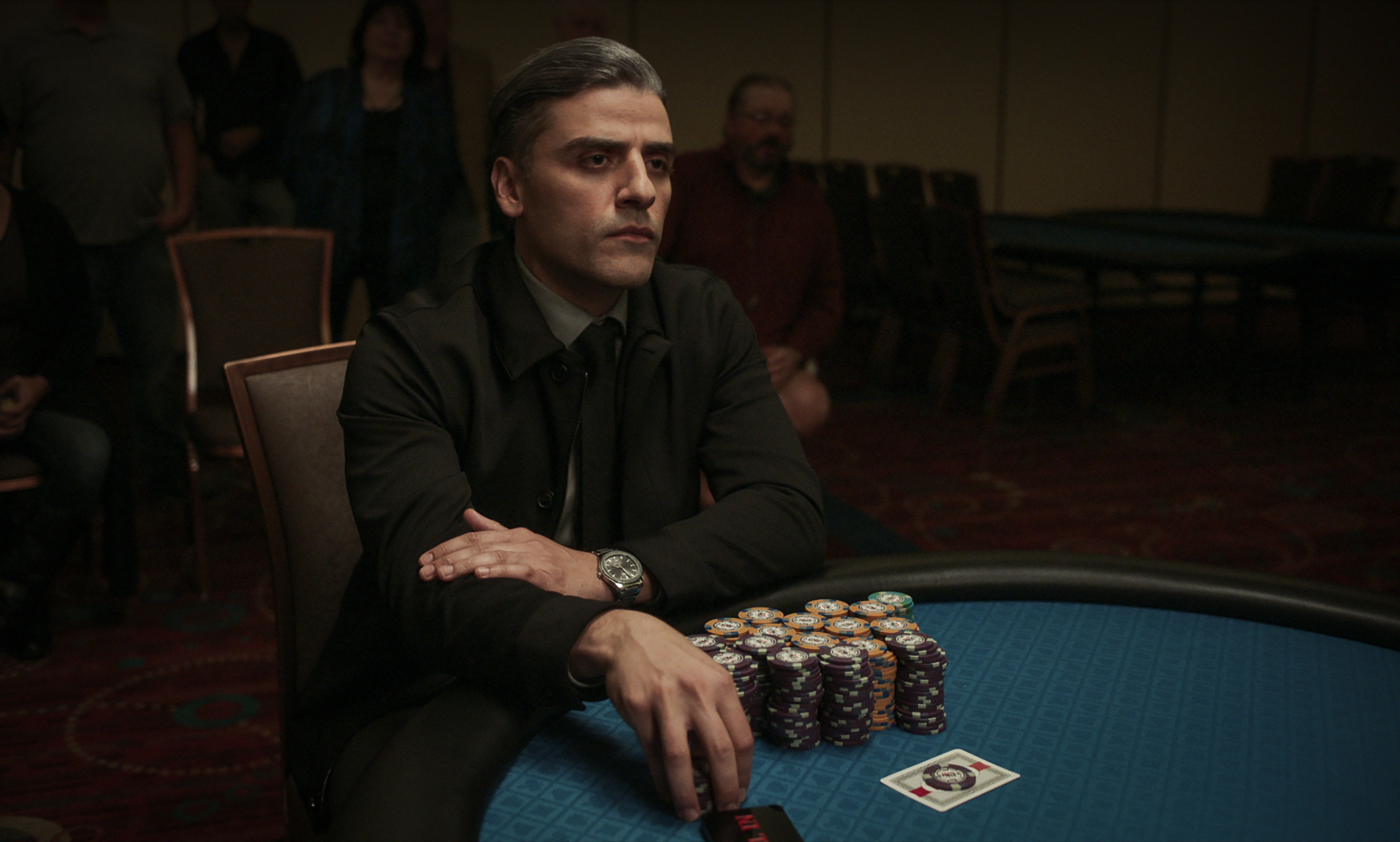The 1970s were the American Renaissance from their 1930s beginnings. It was a flourishing decade defined by new directors, a darker storytelling landscape, and boundary pushing world creation. But while Hollywood moved on from that Renaissance, Paul Schrader is totally content to deliver more curmudgeonly 70s style stories. The Card Counter would have been right at home in that decade, wallowing in the societal fringes and morally complicated lifestyle of America’s greatest movie decade…about 40 years later.
Our card counter is William Tell (Oscar Isaac), who left his overtures and crossbows at home in favor of Blackjack and Poker tables. William is content to live simply, driving casino to casino making a little bit of money and getting out before he draws too much attention. After one of his blackjack heaters, Tell runs into a loner kid named Cirk (Tye Sheridan), and takes him under his wing. Cirk is in over his head with debt, forcing William to take an offer from La Linda (Tiffany Haddish), who can help get William into more high stakes poker matches to make more money and give the kid a second chance.
Schrader is endlessly fascinated with the plight of the working man; in particular, damaged working men. The Card Counter is only his latest study of this archetype. This particular character study isn’t as deep as some of Schrader’s other scripts. Nevertheless, he hasn’t lost any of his storytelling power. Schrader immediately establishes Tell’s steely reserve and obsessive compulsive tendencies, keeping the audience guessing what William’s true motives are. Schrader then slowly weaves in pieces of Tell’s backstory to paint a fuller picture of the character he’s trying to create, while at the same time evolving the character through his interactions with Cirk, La Linda, and other people. What makes The Card Counter different is the path the movie chooses to navigate in the third act. Most of Schrader’s other films have the main character morally confused as to the right course of action; in The Card Counter, that moral confusion is settled by the third act, with the resolution dependent on if William can execute the plan he wants to execute before anyone gets hurt.
Character studies like The Card Counter need an actor with such a force of personality the movie has to revolve around them. Kudos to Schrader for landing on Oscar Isaac, who has some knowledge of the Force. Before Isaac got swallowed whole by the Star Wars machine, he was a captivating actor on the rise, holding his own leading a Coen Brothers movie. He channels that early promise here, carrying the movie with his acting. Isaac gives William an insatiable drive and control, making everyone he works with bend to his self-assured will. You get the feeling even Willaim’s “outbursts” are staged because of how Isaac gives us a full timeline of understanding around how William came to be. The other two parts of the 3 hander are Tye Sheridan and Tiffany Haddish. Sheridan is as good as he’s ever been; Haddish tries, but the acting the script asks of her is slightly outside her wheelhouse. But in the end, no matter what, Oscar Isaac shows up to clean up the mess and move things along.
I no longer need a Rounders 2, because I’ve seen The Card Counter. Oscar Issac is just playing PTSD Mike McD. Tye Sheridan is our Worm; that works, since he starred in Mud already. And Tiffany Haddish is an improvement over Mike McD’s wet blanket girlfriend. Sadly Teddy KGB is nowhere to be seen, but we can assume William Tell probably crossbowed him to death and changed his name.

